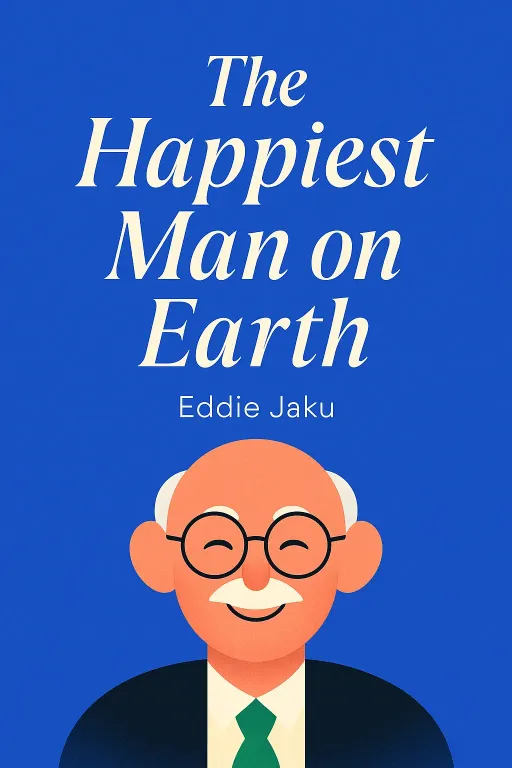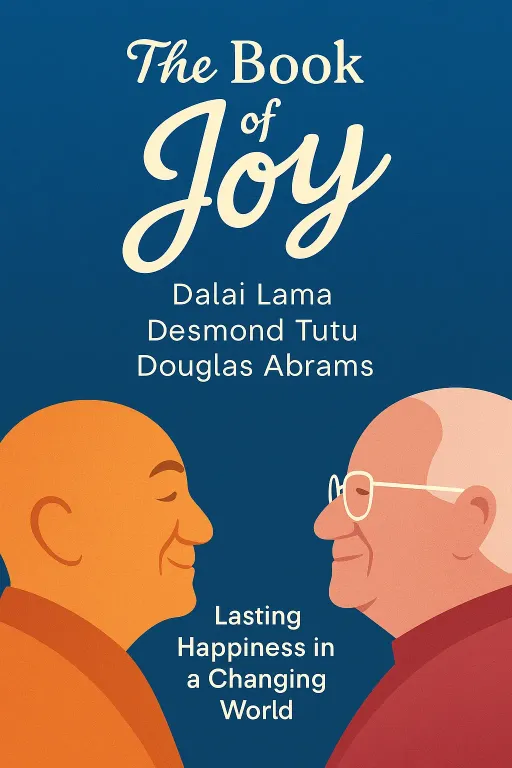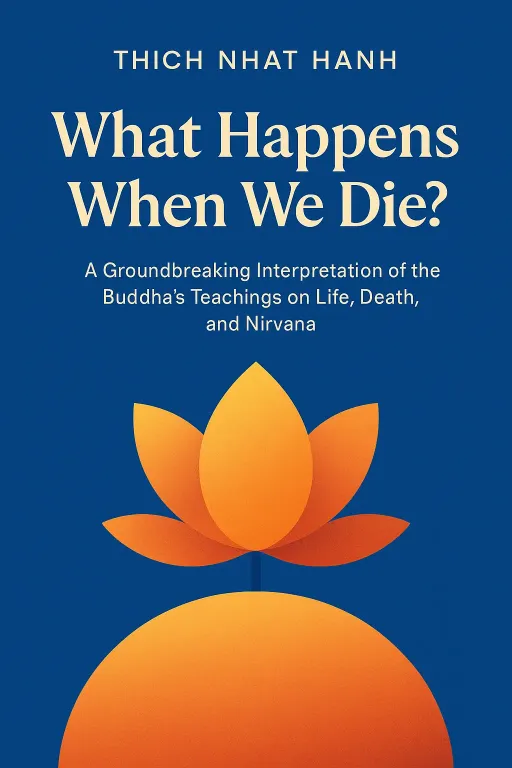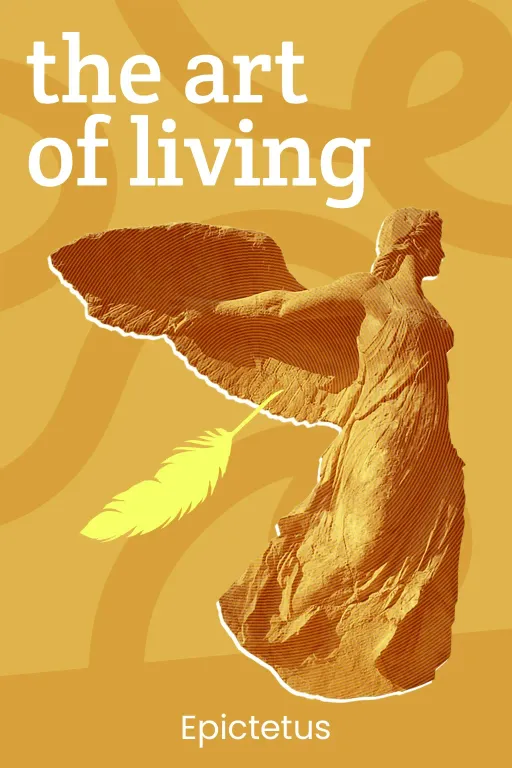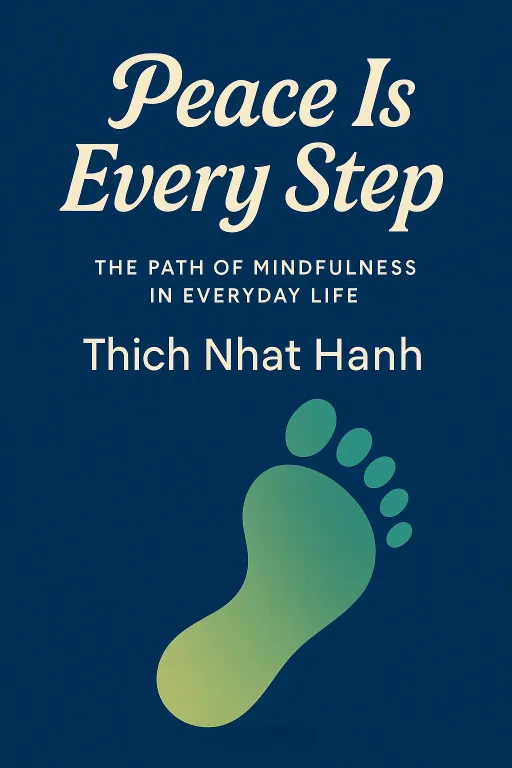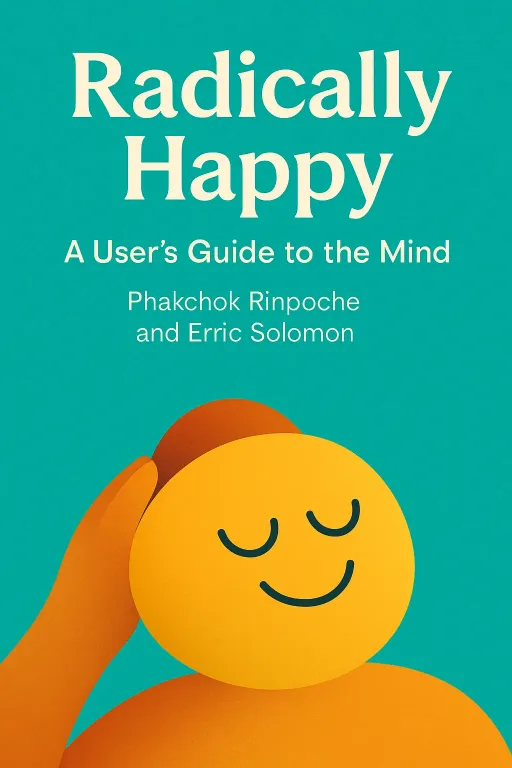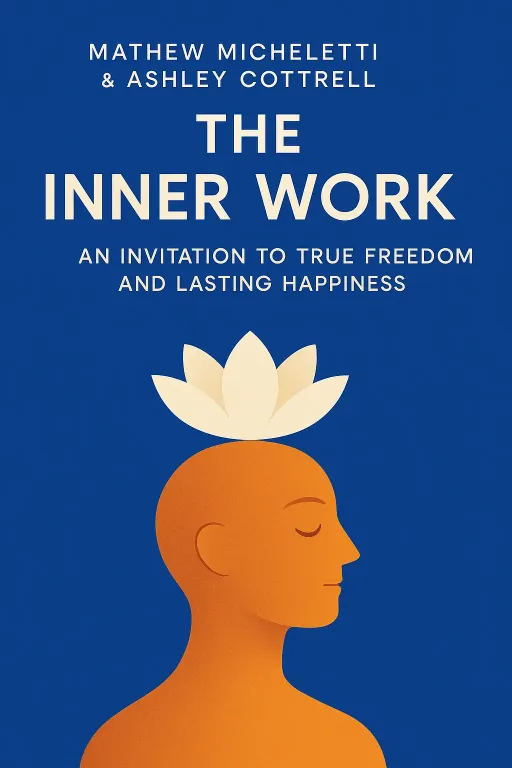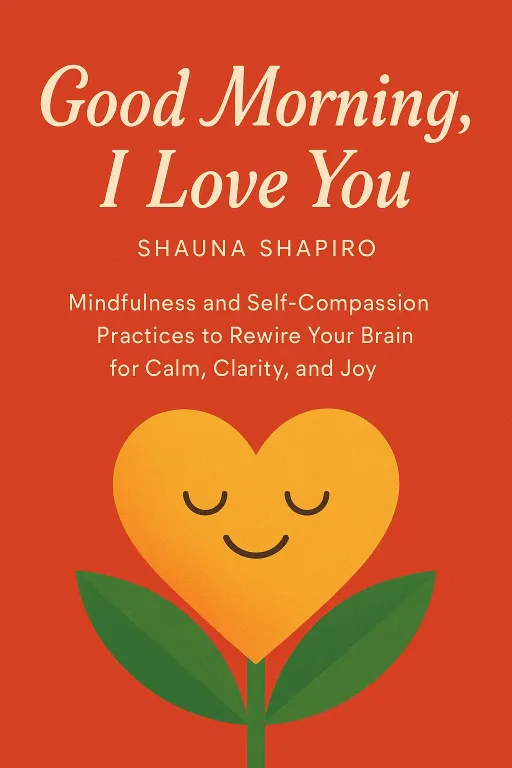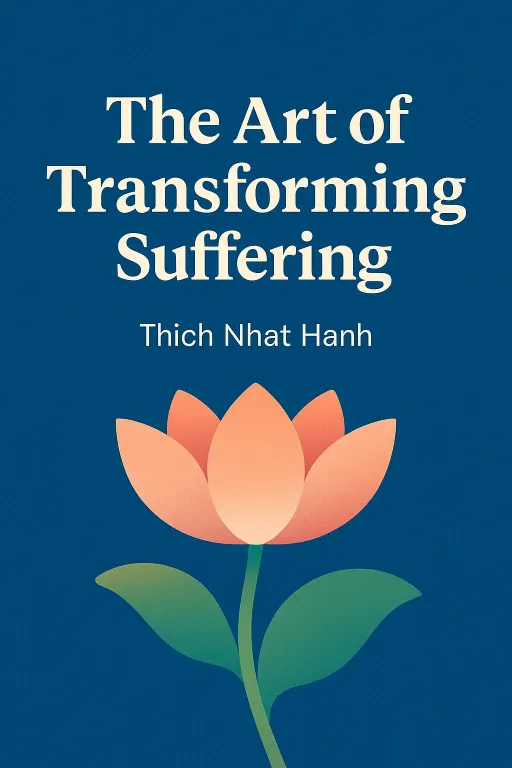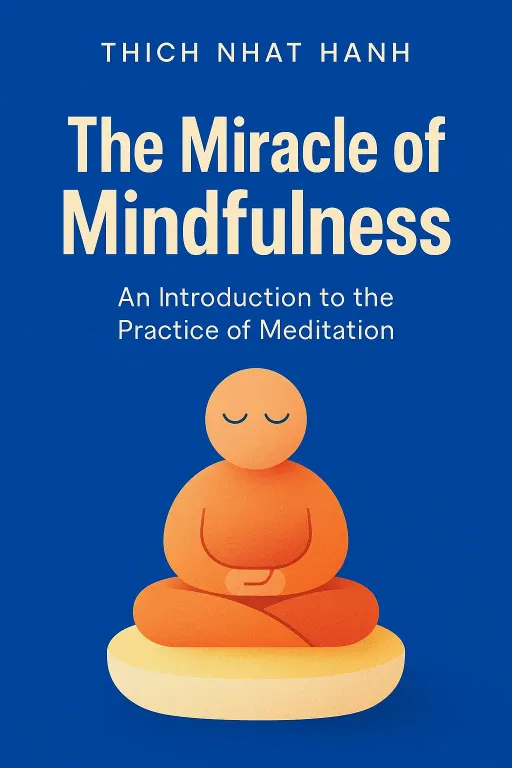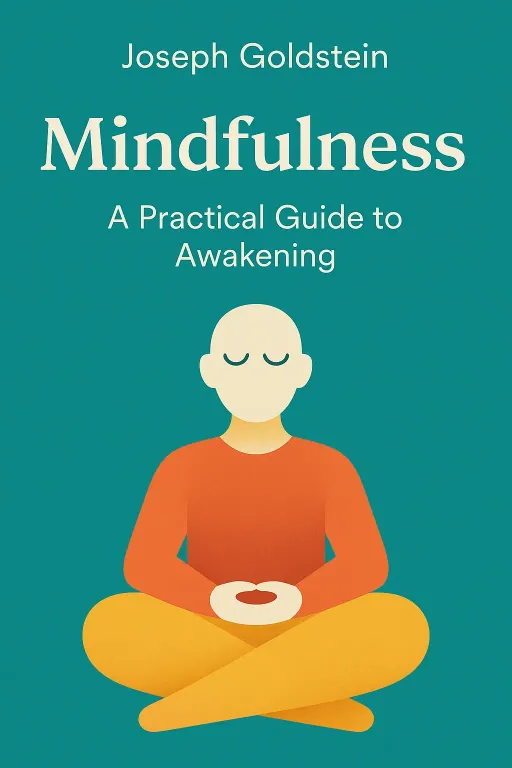
The Awakened Leader: Coding a New Civilization with Ancient Wisdom
11 minGolden Hook & Introduction
SECTION
Nova: What if the most effective operating system for a 21st-century leader wasn't written in Python or C++, but on palm leaves 2,500 years ago? What if the key to building a new, conscious civilization lies in a timeless code for awakening the human mind? That's the provocative idea we're exploring today with Yue, the founder of Codemao, a leader dedicated to exactly that mission. Welcome, Yue.
Yue: It's a pleasure to be here, Nova. That's a question I think about every day. Is there a universal source code for human flourishing? I believe there is.
Nova: I'm so glad you do, because we are diving headfirst into what might be one of its purest expressions: Joseph Goldstein's masterwork, 'Mindfulness: A Practical Guide to Awakening.' It’s a profound manual for the mind. Today we'll tackle this from two perspectives. First, we'll explore the four essential qualities of mind that act as a powerful 'leadership operating system.' Then, we'll decode the mental 'algorithm' the Buddha taught for achieving ultimate clarity and freedom from bias, a state he called 'bare knowledge.'
Yue: I love that framing. An operating system and an algorithm. It’s the perfect way to bridge ancient wisdom and modern application. Let's get into it.
Deep Dive into Core Topic 1: The Leader's Operating System
SECTION
Nova: Fantastic. So, Yue, let's start with that 'operating system.' In the book, Goldstein breaks down the foundation of a stable, awakened mind into four essential qualities: Ardency, which is sustained energy; Concentration, a settled mind; Mindfulness, the quality of remembering to pay attention; and the one I want to start with, 'Clearly Knowing.' It sounds a bit esoteric, but it's incredibly practical.
Yue: 'Clearly Knowing'… it implies not just awareness, but a deep comprehension. What does Goldstein say about it?
Nova: Exactly. It's about understanding the behind our actions. Are they skillful or unskillful? Are they leading to happiness or suffering? There's this beautiful story in the book that makes it so clear. The Buddha visits a group of monks living together in a forest and asks them, "Are you all living harmoniously?"
Yue: A classic leadership check-in.
Nova: Right? And one of the senior monks, Anuruddha, replies. He says, yes, they are. And the Buddha asks how. Anuruddha's answer is just stunning. He says, "Venerable sir, I set aside what I wish to do and do what the other monks wish to do." And then each of the other monks says the same thing.
Yue: Wow. That's… profound. My first thought from a tech perspective is that this is the ultimate form of decentralized, high-trust teamwork. It's not about blind obedience or a top-down hierarchy. It's about each 'node' in the network—each monk—having such a clear comprehension of the collective mission, the shared well-being, that their personal preference, their own 'feature request,' becomes secondary.
Nova: That's a perfect way to put it! It's not about being a doormat; it's about an intelligence that sees the bigger picture. It's the 'why' behind the 'what.'
Yue: And in any organization, especially one trying to build something new and purposeful, that alignment of intent is everything. If your team is operating from a place of 'clearly knowing' the shared mission, you eliminate so much friction, politics, and ego-driven conflict. You're all coding towards the same goal.
Nova: Exactly! And that alignment, that beautiful harmony, is protected by another quality from the book: Mindfulness. Goldstein tells this very relatable, personal story. He describes walking down Fifth Avenue in New York City on two different occasions.
Yue: I can already feel the sensory overload.
Nova: Totally. The first time, he's just walking, looking in the store windows. He sees all these seductive things for sale, and he describes his mind as "continually reaching out with desire for one thing after another." The result? He felt agitated, uneasy. A mind filled with wanting.
Yue: I know that feeling well. It's the state of modern life, isn't it? The endless scroll, the constant notifications, the competitor's latest launch.
Nova: Precisely. But then he describes a second walk. This time, he's more mindful. He's intentionally practicing. He walks down the same street, sees the same things in the windows, but this time, he just them. He's not reaching out. He's not wanting. And the result? His mind is peaceful, happy. Mindfulness acted as a protector.
Yue: That's the daily battle for any creator or entrepreneur. The 'store windows' are endless—new technologies, market trends, investor demands. Your mind can be constantly 'reaching out with desire,' as Goldstein says, leading to agitated, reactive decisions. You chase every shiny object.
Nova: And you end up with a product that does a million things poorly.
Yue: Exactly. The practice of mindfulness he describes is like a firewall for a leader's mind. It allows you to see all the incoming data—the market signals, the competitor moves—without letting the 'malicious code' of reactive desire or fear execute and disrupt your core mission. You can observe the data, acknowledge it, and then consciously choose how to respond based on that 'clearly knowing' of your purpose.
Nova: A firewall! I love that. It's not about blocking the world out, but about filtering the input so you can maintain your system's integrity.
Yue: That's it. It’s the difference between being driven by the environment and consciously navigating it. That's a superpower for a leader.
Deep Dive into Core Topic 2: The Algorithm of Awareness
SECTION
Nova: I love that 'firewall' analogy. And that brings us perfectly to the core algorithm for how that firewall works. It's found in what Goldstein calls the 'Satipaṭṭhāna Refrain,' a kind of mental loop that the Buddha repeats over and over. A key part of it is achieving what he calls 'bare knowledge.' And there's no better story to illustrate this than the Bahiya Sutta.
Yue: I'm intrigued. 'Bare knowledge' sounds like a raw data stream.
Nova: It is! The story goes that a man named Bahiya was shipwrecked and lost everything. He became a wandering ascetic, and people started to think he was enlightened. But deep down, he knew he wasn't. So he travels a great distance to find the Buddha, desperate for a teaching. He finds the Buddha on his alms round in a village.
Yue: So the timing isn't great.
Nova: Not at all. The Buddha says, "It's not the time, Bahiya." But Bahiya persists, saying, "Life is uncertain, I might die, you might die, please teach me now!" The Buddha sees his urgency and gives him the entire teaching in a single, powerful instruction. He says: "Bahiya, you should train yourself thus: In the seen, there will be only the seen. In the heard, only the heard. In the sensed, only the sensed. In the cognized, only the cognized."
Yue: ... Wow.
Nova: And the book says that in that moment, Bahiya's mind was freed from all attachments. He became fully liberated, right there in the street.
Yue: That's the ultimate API call to reality. It's a command to strip away all the layers of interpretation, judgment, and storytelling that we automatically pile on top of raw data. As a leader, you're constantly presented with situations—a product launch underperforms, a key employee resigns, a major client is unhappy.
Nova: And the mind immediately starts spinning a story.
Yue: Immediately. The untrained mind jumps to, "This is a disaster. It's my fault. The company is doomed. I'm a failure." Bahiya's instruction is the antidote. It's a command to first see the raw data: 'In the seen, there is only the seen.' The launch numbers are what they are. The employee has submitted their resignation. The client has expressed dissatisfaction. Start there, with the 'bare knowledge,' before you build a narrative of suffering and delusion around it. Only from that clear, unadorned place can you act wisely.
Nova: It's so simple, but so profound. And it's so easy to miss, isn't it? We're always looking for a more complicated answer. Goldstein tells this funny Sufi story about a trickster figure named Mulla Nazruddin that perfectly illustrates this.
Yue: I'm ready.
Nova: Nazruddin is seen for years leading donkeys packed with straw across a border. The customs officials are convinced he's a smuggler. Every single time, they pull him aside, unpack all the straw, search him from head to toe, but they never find anything. Years go by, and Nazruddin becomes visibly wealthy. Finally, a retired customs official sees him in the market and says, "Mulla, I know you were smuggling something. It's driven me crazy for years. I'm retired now, it doesn't matter. Please, just tell me, what were you smuggling?"
Yue: And the answer is?
Nova: Nazruddin smiles and says, "Donkeys."
Yue: Of course! That's brilliant. It was right there in front of them the whole time.
Nova: Exactly! They were so busy looking for the hidden, complex 'contraband'—the jewels or spices hidden in the straw—that they completely missed the obvious thing right in plain sight.
Yue: That is a perfect metaphor for so much of business and life. We're always looking for the complex, hidden 'contraband' in a situation—the secret political motive in a colleague's email, the elaborate conspiracy in a market shift. But so often, the most important truth is the 'donkey' right in front of us. The practice of 'bare knowledge' is about training the mind to stop searching for imaginary jewels and just learn to see the donkey.
Nova: 'Learning to see the donkey.' I think that might be the best summary of mindfulness practice I've ever heard.
Synthesis & Takeaways
SECTION
Nova: So, as we bring this together, we have this incredible two-part framework from the book. First, the 'Operating System' of the Four Qualities—Ardency, Clearly Knowing, Mindfulness, and Concentration—to guide our fundamental state of mind.
Yue: And second, the 'Algorithm' of the Satipaṭṭhāna Refrain, which teaches us to process reality with the clarity of 'bare knowledge.'
Nova: And they work together, don't they?
Yue: They have to. The Four Qualities give you the stable platform, the processing power. And the algorithm of 'bare knowledge' is the application you run on it to make sense of the world without the bugs of greed, aversion, and delusion. One without the other is incomplete.
Nova: Beautifully put. So, Yue, your life's work is about building a new 'civilization code.' If you could give our listeners one line of that code to implement from our discussion today, a single practice to take away, what would it be?
Yue: It would have to come from 'Clearly Knowing,' because intention is the start of everything. So the line of code is a question. For the next week, before you start a major task, before you send an important email, before you enter a difficult conversation, just pause. Pause and ask yourself: "What is my core motivation here?"
Nova: Mmm.
Yue: Is it to help, or to win? Is it to create, or to compete? Is it coming from a place of openness, or a place of fear? That simple inquiry can change everything. It's the first step in debugging our own inner code. And if enough of us do that, we begin to debug the code of the world.
Nova: Debugging the world by debugging ourselves. A powerful and hopeful place to end. Yue, thank you so much for sharing your insights today.
Yue: The pleasure was all mine, Nova. Thank you.
